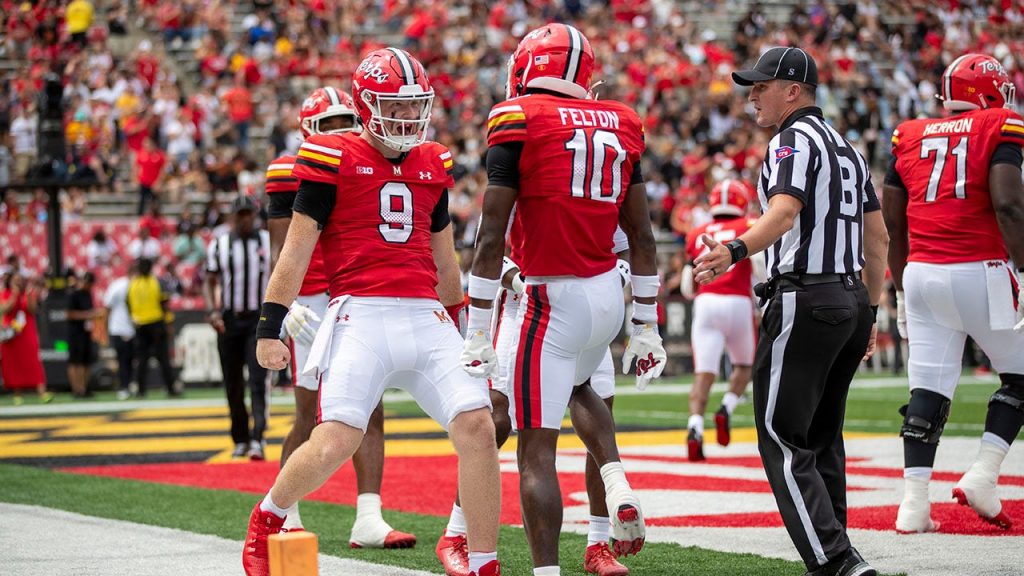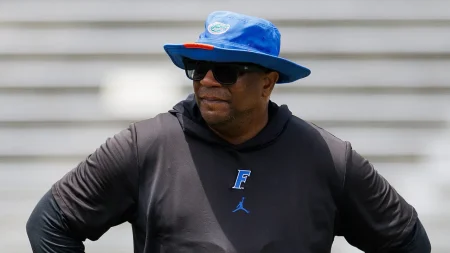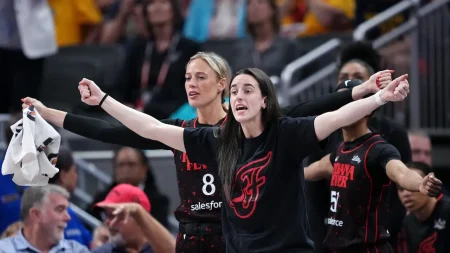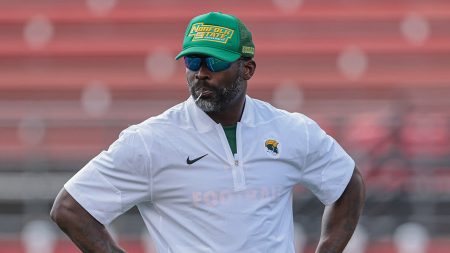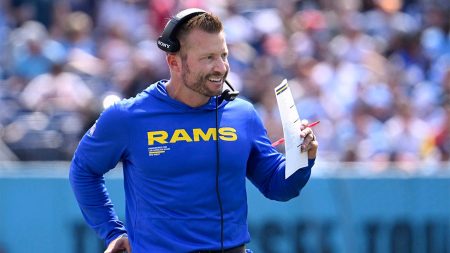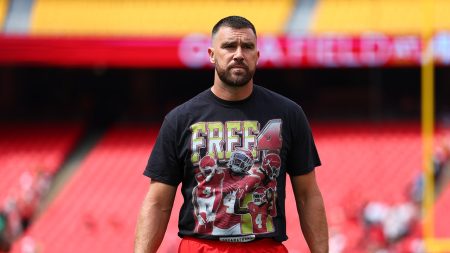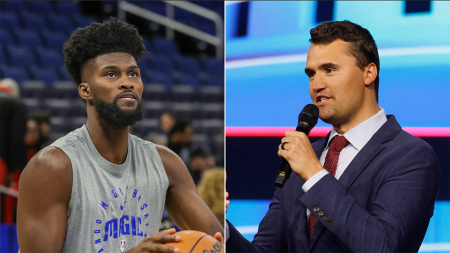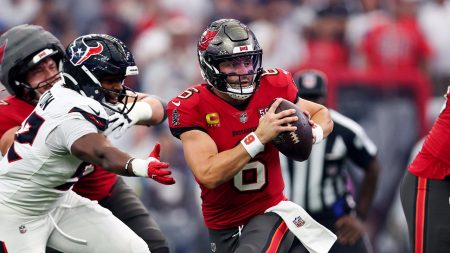In Saturday’s game between UConn and Maryland, defensive back Jordan Wright was ejected for targeting after a late and high hit on quarterback Billy Edwards Jr. Edwards, who had taken over as Maryland’s starting quarterback for Taulia Tagovailoa this year, was scrambling for a first down in the second quarter when Wright hit him. The impact of the hit caused Edwards to go down to the ground, and his helmet flew off. Wright’s ejection came in the first half with Maryland leading 17-0. The penalty against Wright was later negated after an altercation involving Maryland offensive tackle Andre Roye, but the Terrapins still managed to extend their lead to 23-0 by halftime. Wright is a graduate student in his first season with UConn after playing two seasons at Kansas State, where he appeared in 13 games and recorded eight total tackles and two pass deflections.
Despite the hit from Wright, Edwards continued to perform well, completing 20 passes for 311 yards and two touchdowns through the fourth quarter. Maryland maintained a significant lead of 43-7. Wright’s ejection did not appear to affect Edwards’ performance, as he was able to overcome the hit and maintain his focus on the game. This demonstrates Edwards’ resilience and ability to stay focused under pressure. The game’s outcome was heavily in favor of Maryland, with their strong performance on both offense and defense resulting in a dominant lead over UConn. Wright’s actions, though resulting in his ejection, did not deter Maryland’s momentum and ultimately did not impact the outcome of the game significantly.
The incident involving Wright’s ejection highlights the importance of player safety in football. Targeting penalties are enforced to protect players from unnecessary and dangerous hits, which can cause serious injuries. In this case, Wright’s hit on Edwards was deemed to be targeting due to its late and high nature, which posed a risk to the quarterback’s well-being. Player safety is a top priority in football, and penalties such as targeting are implemented to ensure that players are not put at risk of injury due to reckless or overly aggressive plays. The ejection of Wright serves as a reminder to players and teams about the importance of playing within the rules and prioritizing the safety of all athletes on the field.
Despite the ejection and penalty against Wright, Maryland continued to dominate the game, showcasing their strong performance on both offense and defense. Edwards’ ability to remain focused and deliver a strong performance following the hit is a testament to his resilience and skill as a quarterback. Maryland’s success in the game demonstrates their ability to overcome challenges and maintain their momentum, even in the face of adversity. The team’s strong leadership and performance under pressure contributed to their decisive victory over UConn. As the game progressed, Maryland’s lead continued to grow, highlighting their command of the game and their skill in executing plays effectively.
In conclusion, the ejection of Jordan Wright for targeting during the game between UConn and Maryland was a notable incident that underscored the importance of player safety in football. Edwards’ ability to continue performing well following the hit exhibited his resilience and skill as a quarterback. Maryland’s dominant performance throughout the game demonstrated their strength and ability to overcome challenges. Player safety will always remain a top priority in football, and penalties such as targeting serve as a deterrent against dangerous plays that put athletes at risk. Despite the ejection of Wright, Maryland maintained their focus and secured a decisive victory over UConn. The game served as a reminder of the importance of adhering to rules and regulations to ensure the safety and well-being of all players on the field.




